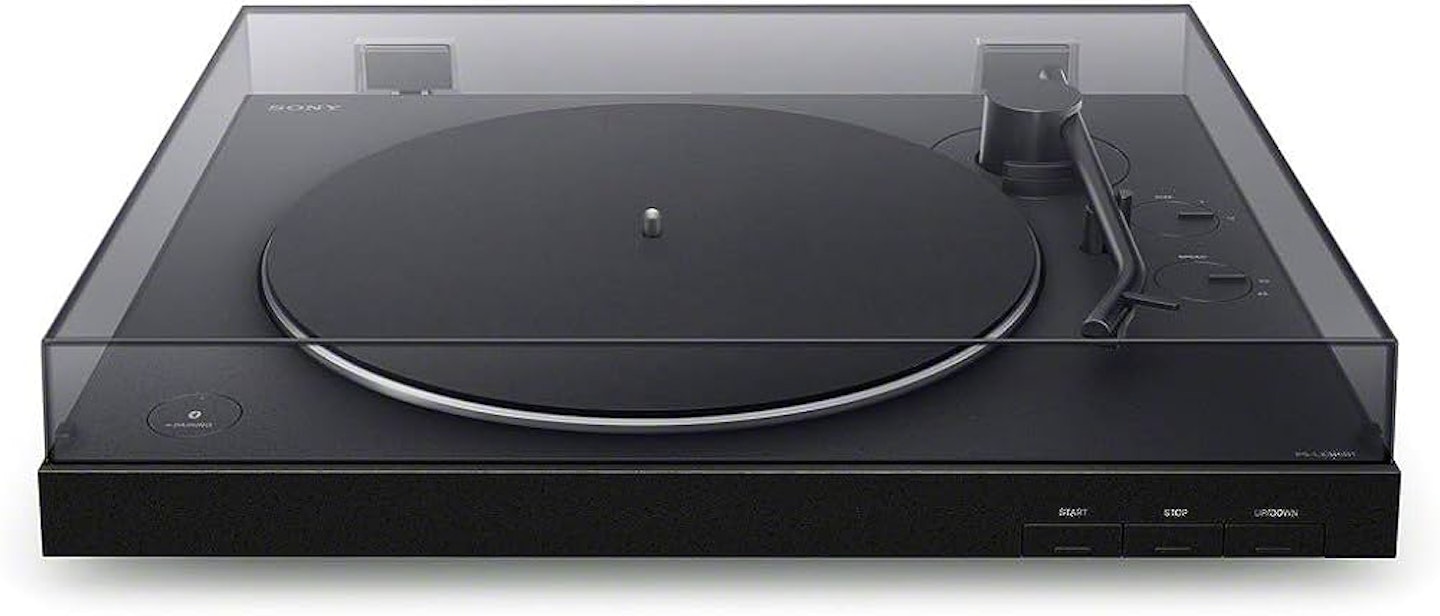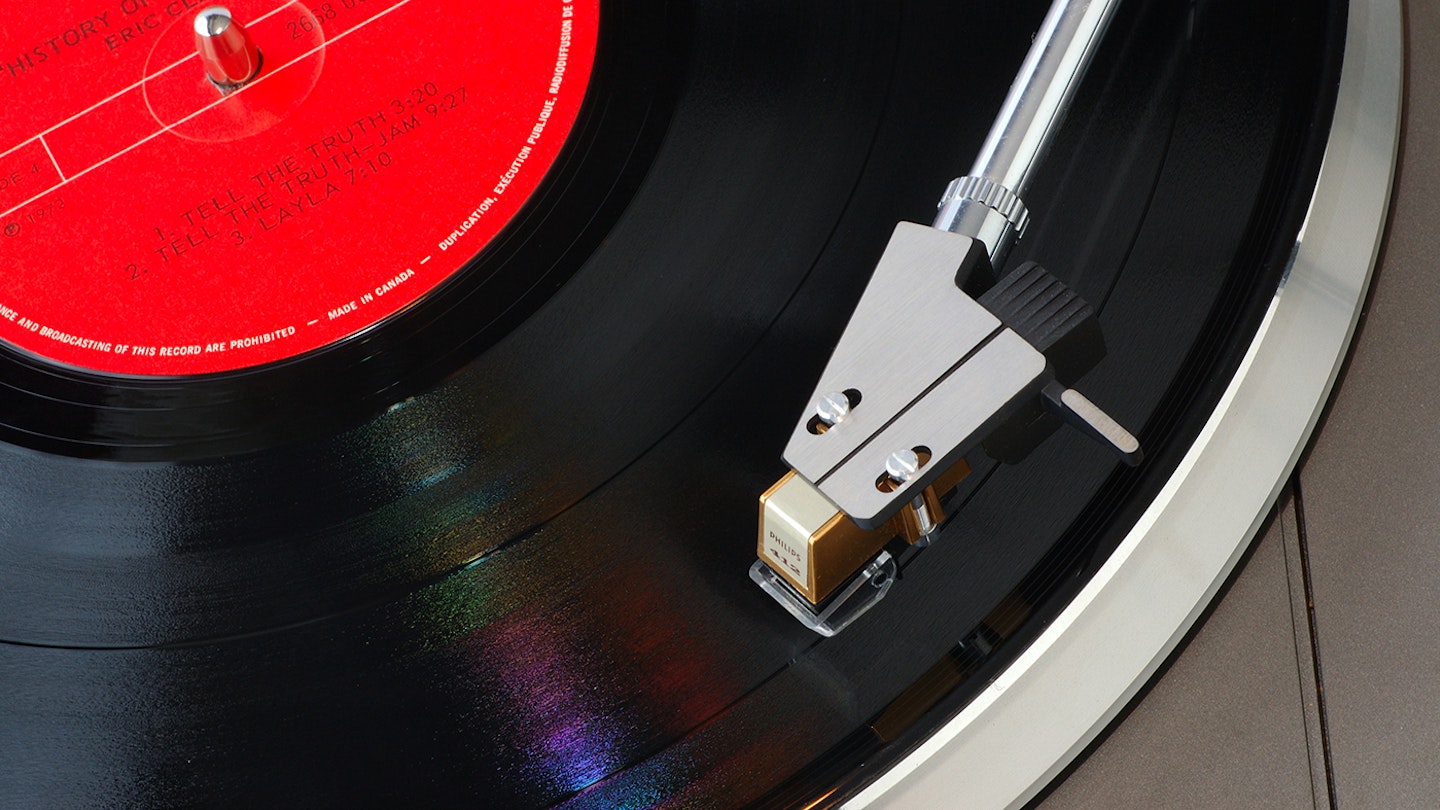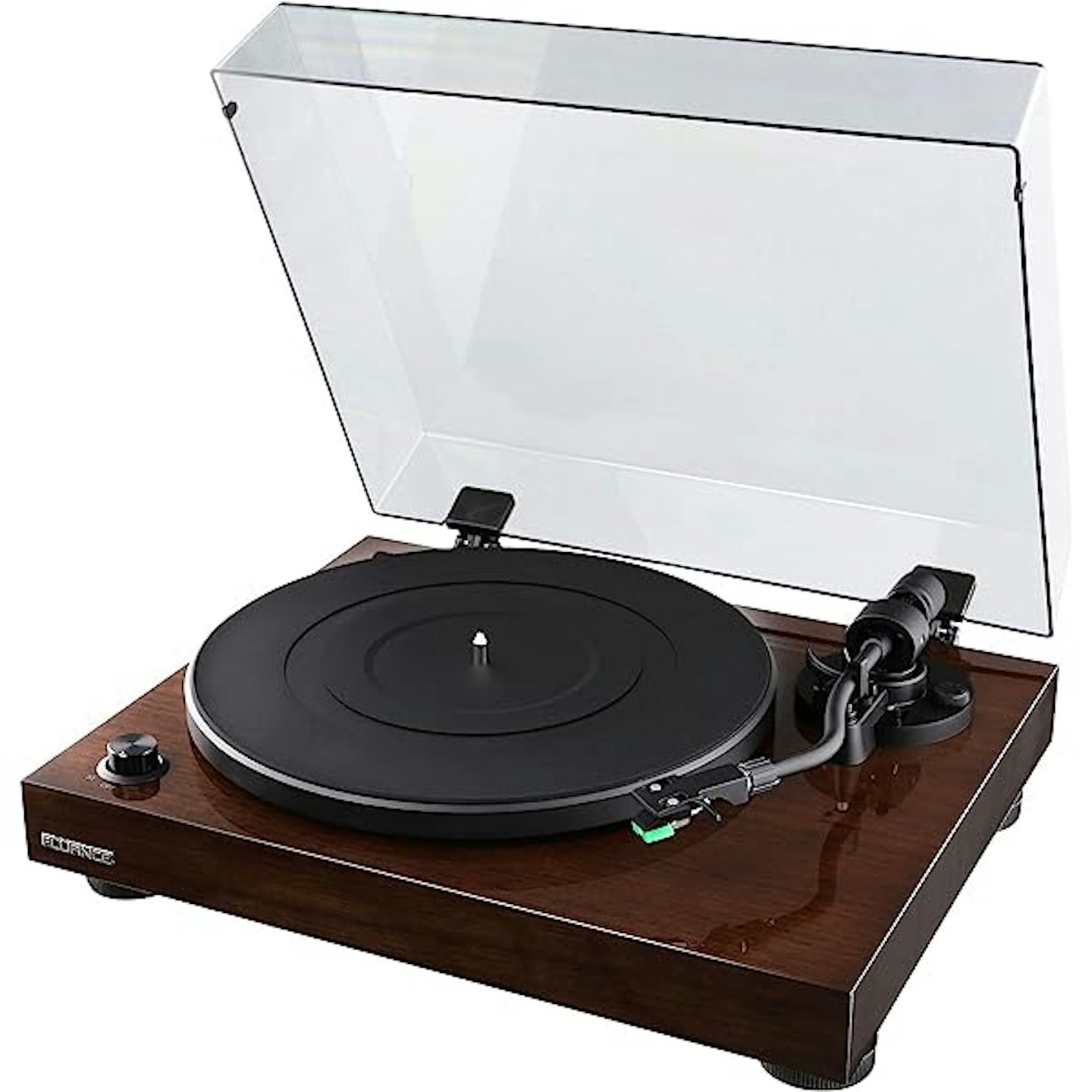It’s no great surprise to us here at MOJO that vinyl sales continue to rise yearly. We’ve been waxing lyrical about the virtues of vinyl ever since MOJO’s inception 30 years ago. Of course, all that lovely black plastic on your shelves needs a turntable that can do your treasured LPs justice. Thankfully, you don’t need to sell the rarest gems in your collection to finance the purchase of one, either.
Whether you’re looking for your first turntable or an upgrade to your existing setup, MOJO’s experts have curated a list of the best record players you can buy currently without leaving an enormous dent in your wallet.
Best Turntables Under £350 In 2023 At A Glance
-
Best belt-drive turntable under £350: Fluance RT82 - View on Amazon
-
Best first-time turntable purchase: Audio-Technica AT-LP60XBT - View On Amazon
-
Best for digitising vinyl: Audio-Technica AT-LP120XUSB - View On Amazon
-
Best for Bluetooth use: Sony PS-LX310BT - View On Amazon
When researching our picks, we’ve prioritised a few things. Firstly, the turntable’s build quality. A sturdy and well-constructed unit will reduce vibrations and enhance sound clarity. Look for a turntable with a solid plinth and a heavy platter, such as the Pro-Ject Debut Carbon, which is well-respected for its high build quality.
Next, we’ve considered the drive mechanism. Belt-driven turntables are more common and less expensive, but direct-drive turntables offer better speed stability. We’ve picked the best of both, so you can choose the right one. We’ve balanced cartridges, arm construction, and preamps. Read on to see MOJO’s selection. Happy listening...
The Best Record Players Under £350 In 2023
Best belt-drive turntable under £350
The Fluance RT82 is a high-quality belt-drive turntable that offers excellent value for money. It features a sturdy MDF plinth, an Ortofon OM10 cartridge, and a built-in phono stage. The RT82 turntable is a perfect option for newcomers and seasoned users. Its simple setup and user-friendly design make it hassle-free, while its sound quality impresses at its price point.
What makes the RT82 stand out from many other turntables at this price range is its anti-skate control that enhances tracking precision and its versatility in accommodating various cartridge types.
It’s a close-run race between this and the Pro-Ject above. Choosing between the Fluance RT82 and the Pro-Ject Debut Carbon depends on your specific requirements and preferences. If you prioritise a quiet turntable with a built-in phono stage, the RT82 would be a suitable option. On the other hand, if you prefer a turntable featuring a direct-drive motor and the flexibility to upgrade the cartridge, the Debut Carbon would be a better fit for you.
Pros
- Excellent sound quality for price range
- Built-in phono stage
- Anti-skating control
Cons
- Not suitable for users who prefer direct drive motor.
Best first-time turntable purchase
The Audio-Technica AT-LP60XBT is a good turntable for an affordable and easy-to-use option. It has a built-in phono stage to connect directly to powered speakers and Bluetooth connectivity to stream your records to wireless speakers or headphones.
The AT-LP60XBT has a belt-drive mechanism, which discerning ears will note as quieter and smoother than a direct-drive mechanism. It also has an automatic start/stop feature, so you don’t have to lift and lower the tonearm manually. The sound quality of the AT-LP60XBT is good for its price range, letting the characteristics and idiosyncrasies of vinyl pressings shine through.
Pros
- Ease of use
- Affordable
- Good sound quality for price
Cons
- Better sound quality available for under £350
Best for digitising vinyl

The Audio-Technica AT-LP120XUSB is a fantastic turntable designed for those seeking a step up from the AT-LP60XBT, offering enhanced features and performance. It boasts a direct-drive mechanism, which ensures more consistent speed and torque compared to a belt-drive system - it’s a feature favoured by many audiophiles and DJs for its accuracy and reliability during playback. The turntable has plenty of durability and stability thanks to its sturdy metal construction.
The turntable has a built-in phono stage for a streamlined setup and a USB output, allowing seamless connectivity to a computer for the digital conversion of vinyl records.
Its high-quality cartridge delivers impressive audio fidelity, capturing the nuances and subtleties of music for an immersive listening experience. The AT-LP120XUSB offers adjustable counterweight and anti-skating controls, allowing users to fine-tune the sound to their preferences. Whether you prefer crisp, detailed playback or a warmer, more vintage sound, this turntable caters to all tastes.
Pros
- USB outage allows for digital conversation of vinyl records
- Durable design
- High quality audio fidelity
- Adjustable counter weight and anti-skating controls
Cons
- Not all users will need every feature
Best for Bluetooth use

The Sony PS-LX310BT is an excellent turntable that combines modern technology with timeless charm. The built-in phono preamp, which includes three gain modes, eliminates the need for an extra amplifier, simplifying the setup process. Its Bluetooth connectivity allows easy pairing with your wireless headphones, making it a convenient choice.
With features like auto-start and auto-stop, using the turntable becomes hassle-free. Thanks to the high-quality cartridge and diamond stylus, the PS-LX310BT delivers a rich, warm sound experience right from the off. Whether you’re a vinyl enthusiast rediscovering your collection or new to vinyl, this turntable promises an enjoyable listening journey.
Pros
- Built-in phono pre-amp means no need for extra amplifier
- Bluetooth connectivity
- High quality cartridge and diamond stylus
Cons
- Might not directly substitute into your existing set-up if you use an amp
Belt-drive versus direct-drive turntables
There are two types of turntables to consider: belt-drive and direct-drive. Both have unique advantages and characteristics, catering to different user preferences.
Belt-drive turntables use a belt to connect the platter and motor, which is usually placed off to one side. In this setup, a belt acts as a decoupling mechanism, reducing motor noise and vibrations from reaching the platter, resulting in improved sound quality and a quieter listening experience.
Additionally, the belt’s elasticity provides a gentle start-up, preventing sudden jerks that could harm delicate records. However, belt-drive turntables may take a beat reach playback speed, which may be fine for listening in your front room but could be a concern for DJs or those seeking instant playback.
Direct-drive turntables have the motor positioned directly beneath the platter, eliminating the need for a belt. This design allows quick start-up times. Direct-drive turntables typically offer more precise RPM speed control and often have pitch controls to fine-tune playback. However, direct-drive turntables may introduce more noise and vibrations into the system, potentially affecting sound quality.
Ultimately, the decision between belt-drive and direct-drive turntables hinges on personal choice. If precise speed control, quick start-up times, and the need for pitch adjustments are your priorities, then a direct-drive turntable might be the more suitable choice. On the other hand, opting for a belt-drive turntable could be ideal if you value quieter operation, reduced vibrations, and a more classic turntable experience.
Regardless of your choice, both designs have an individual allure and, with the correct setup and cartridge combination, can deliver outstanding audio performance.
Do I need an amp with my turntable?
Whether or not an amplifier is necessary for your turntable depends on the type of turntable you have and how you plan to connect it to your speakers.
Some modern turntables come equipped with a built-in phono preamp, amplifying the cartridge’s low-level signal, making it compatible with direct connection to speakers or powered speakers. You won’t need an external amplifier if your turntable has this built-in phono preamp.
However, you will require an external one if your turntable lacks a built-in phono preamp. Turntables without this feature demand a separate phono preamp to amplify the cartridge signal before connecting to an amplifier or powered speakers.
For traditional passive speakers that necessitate a separate power amplifier for operation, you will need an amplifier to link your turntable to these speakers. If you have powered or active speakers with built-in amplifiers, you can directly connect your turntable to them if it includes a built-in phono preamp. If it does not have this preamp feature, you need an external phono preamp to make the connection possible.
What does anti-skate do?
Anti-skate is a mechanism that applies an outward force to the tonearm to counteract its tendency to swing towards the centre of the platter. It can maintain channel balance, reduce distortion, and reduce stylus and record wear, ultimately enhancing overall performance.
What is tracking force?
Tracking force refers to the weight a cartridge applies to a record during playback. Finding the ideal weight setting is crucial for good-quality playback and for minimising wear on the record. Different cartridges have varying optimum weights, so following the manufacturer’s guidelines is essential when setting up your record player. You can purchase a small turntable scale for relatively cheap if you want to accurately set up an arm’s weight for a new cartridge.
What is pitch control?
Pitch control allows users to adjust the turntable speed in RPM. This feature is typically found on direct-drive turntables and is popular with DJs for precise beatmatching, matching song tempos accurately.
Why have a USB on a turntable?
USB outputs on record players enable users to digitise vinyl records using audio-editing programs like Audacity, creating electronic copies of their favourite vinyl, classics, or rare pressings.


